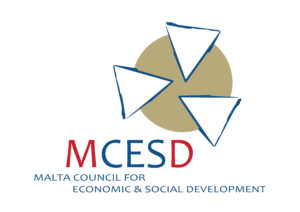MCESD Focuses on Addressing the Cost of Living and Inflation
The Maltese Council for Economic and Social Development (MCESD) convened its tenth council meeting, focusing on key priorities in line with its mission. The session primarily centred around the pressing issues of the cost of living and inflation.
The social partners engaged with prominent actors in this area, including the Governor of the Central Bank of Malta, Prof. Edward Scicluna, the Minister for Finance and Employment, Hon. Clyde Caruana, and the Parliamentary Secretary for Social Dialogue, Hon. Andy Ellul, to gain insights into the current situation regarding these matters.
Professor Scicluna emphasised the crucial role of the Central Bank of Malta, a significant social partner within the MCESD, in ensuring stable and low inflation. He outlined the primary goal of central banks: to maintain an inflation rate of 2%, which allows for a well-functioning economy.
During his presentation, The Central Bank’s Governor highlighted the sectors most impacted by inflation, with the food sector experiencing the greatest upward effect, partially due to reduced energy prices. A comparison of inflation rates across the EU was also provided, offering valuable context.
Furthermore, the Governor detailed the Harmonised Index of Consumer Prices (HICP), a metric used to measure consumer price inflation in the euro area. The HICP tracks changes in the prices of goods and services purchased by households, providing insights into cost fluctuations.
Hon. Clyde Caruana, shared his insights on this significant and sensitive matter to the country, its economy and its competitiveness. While emphasising energy and the economy, he highlighted the government’s efforts to support Malta’s economy, emphasising its strength when compared to other European nations.
The social partners actively voiced their opinions and concerns on this matter of shared interest. Discussions revolved around challenges that the manufacturing sector faces with regard to transportation and logistics, worker wages, the skills gap that the economy faces in nearly all industries, the people’s standards of living, and the cost of living.
The MCESD remains committed to analysing, discussing, and providing recommendations on topics related to the economy and society, ensuring that the interests of both workers and employers are addressed. MCESD remains a strong instrument for social dialogue in Malta’s sustainable development.



